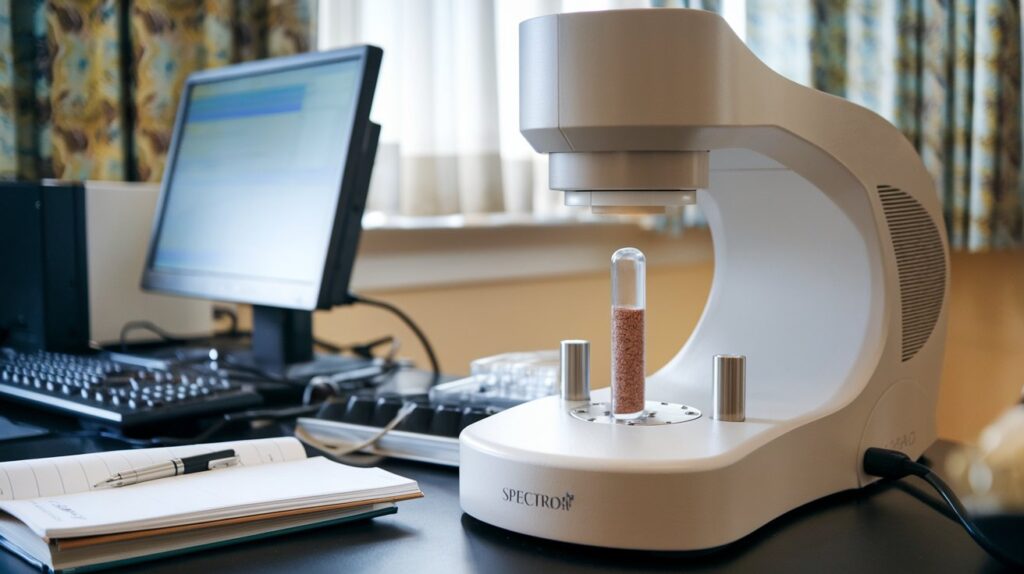Fourier-transform infrared (FTIR) spectroscopy has long been a cornerstone in material characterization, offering rapid and non-destructive analysis of chemical structures. From pharmaceuticals and polymers to environmental testing and food quality assurance, FTIR is trusted for its ability to deliver precise molecular “fingerprints” of samples.
Today, advanced Agilent FTIR spectroscopy instruments are driving the field forward, providing laboratories and industries with enhanced accuracy, efficiency, and speed. These innovations enable faster, more reliable results, making FTIR an indispensable tool across diverse scientific and industrial applications.
What is FTIR Spectroscopy?
FTIR spectroscopy is a technique that measures how infrared light interacts with a sample, detecting vibrations in chemical bonds. The resulting spectrum provides unique molecular information that helps identify compounds, measure concentrations, and study molecular interactions. Unlike older dispersive methods, FTIR uses mathematical Fourier-transform algorithms, making it faster and more precise.
Key Improvements in Modern FTIR Spectrometers
Enhanced Detector Sensitivity
Modern FTIR spectrometers incorporate highly sensitive detectors such as mercury cadmium telluride (MCT) detectors and advanced thermoelectrically cooled options. These deliver superior signal-to-noise ratios, enabling the detection of even trace-level components. This sensitivity is particularly crucial in pharmaceutical research and environmental monitoring, where accuracy at low concentrations can determine safety and compliance.
Improved Optical Components
Advancements in beam splitters, interferometers, and laser reference systems have boosted the precision of wavenumber calibration. Today’s spectrometers offer remarkable reproducibility, ensuring consistent results across multiple measurements and labs. This reduces the need for repeated tests, saving both time and resources.
Faster Data Acquisition
With the integration of faster interferometers and real-time data processing algorithms, modern FTIR spectrometers can collect high-resolution spectra within seconds. Laboratories benefit from improved throughput, allowing more samples to be analyzed in less time-an essential factor in quality control and high-volume industrial applications.
Miniaturization and Portability
Handheld and portable FTIR spectrometers have become increasingly common. These allow on-site testing in environments such as pharmaceutical manufacturing floors, oil refineries, or even forensic investigations. Portability reduces delays caused by sending samples to central labs, enabling instant decision-making.
User-Friendly Software and Automation
Modern FTIR systems are often equipped with intuitive software platforms that feature automated baseline correction, spectral matching libraries, and AI-powered data interpretation. This minimizes human error and makes the technology accessible to both expert analysts and non-specialists. Automation also streamlines workflows, from sample loading to reporting, making the entire process more efficient.
Integration with Complementary Techniques
Many modern FTIR spectrometers can now be integrated with techniques such as thermogravimetric analysis (TGA-FTIR) or gas chromatography (GC-FTIR). These combinations provide deeper insights into decomposition processes, emissions, and complex mixtures, broadening the range of applications while maintaining accuracy.
Benefits for Industries and Research
- Pharmaceuticals: Enhanced accuracy ensures compliance with stringent regulations for drug purity and safety.
- Food & Beverage: Rapid screening detects adulterants and verifies ingredient authenticity.
- Polymers & Plastics: FTIR aids in monitoring polymer degradation, quality, and formulation consistency.
- Environmental Science: Portable FTIR spectrometers enable real-time monitoring of air pollutants and water contaminants.
- Forensics: Law enforcement benefits from quick, reliable identification of drugs, explosives, and unknown substances at crime scenes.
Why Accuracy and Efficiency Matter
In today’s fast-paced industries, the demand for reliable data is higher than ever. Accurate FTIR analysis reduces costly errors, prevents product recalls, and ensures compliance with international standards. Improved efficiency allows businesses to scale their operations, deliver faster turnaround times, and stay competitive.
The Future of FTIR Spectroscopy
As artificial intelligence, cloud-based analysis, and advanced materials science continue to evolve, FTIR spectrometers will become even smarter and more connected. We can expect next-generation instruments capable of predictive analytics, remote diagnostics, and even greater portability-all while maintaining the highest levels of accuracy.
Final Thoughts
Modern FTIR spectrometers represent a leap forward in analytical science. By combining enhanced accuracy with unmatched efficiency, they empower industries and researchers to make faster, more reliable decisions. Whether in pharmaceuticals, food safety, or environmental monitoring, the improvements in FTIR technology are setting new standards for precision and productivity.

